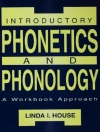This edited volume focuses on the hypothesis that performativity is not a property confined to certain specific human skills, or to certain specific acts of language, nor an accidental enrichment due to creative intelligence. Instead, the executive and motor component of cognitive behavior should be considered an intrinsic part of the physiological functioning of the mind, and as endowed with self-generative power. Performativity, in this theoretical context, can be defined as a constituent component of cognitive processes. The material action allowing us to interact with reality is both the means by which the subject knows the surrounding world and one through which he experiments with the possibilities of his body. This proposal is rooted in models now widely accepted in the philosophy of mind and language; in fact, it focuses on a space of awareness that is not in the individual, or outside it, but is determined by the species-specific ways in which the body acts on the world. Thistheoretical hypothesis will be pursued through the latest interdisciplinary methodology typical of cognitive science, that coincide with the five sections in which the book is organized: Embodied, enactivist, philosophical approaches; Aesthetics approaches; Naturalistic and evolutionary approaches; Neuroscientific approaches; Linguistics approaches. This book is intended for: linguists, philosophers, psychologists, cognitive scientists, scholars of art and aesthetics, performing artists, researchers in embodied cognition, especially enactivists and students of the extended mind.
Jadual kandungan
Introduction.- Dimensions of the bodily creativity. For an extended theory of performativity; Antonio Pennisi.- Part I: Embodied, enactivist, philosophical approaches.- Mindful performance; Shaun Gallagher.- A radical enactivist approach to social cognition; Claudio Paolucci.- On the nature of bodies. With the help of Aristotle; Franco Lo Piparo.- The silent work of speech. On an Enactive grammar’s insight; Francesco La Mantia.- Part II: Extended theory approaches.- Collective Action in the Wild; Mathew D. Mc Cubbins, Mark Turner.- Moderate mindreading priority; Pietro Perconti.- Performativity and the Spread Mind: The Case of Color Afterimages; Riccardo Manzotti.- Performativity and the ideological construction of the self. The age of narcissism and (possibly) beyond; Marco Mazzone.- Part III: Aesthetics approaches.- A bodily take on Aesthetics: Performativity and Embodied Simulation; Vittorio Gallese.- Imagination, Performativity, Technics. A (Post)Kantian Approach; Pietro Montani.- Implications of Creativity: A New Experiential Paradigm for an Aesthetics of the Extended Mind? Giovanni Matteucci.- A Short Survey on Oral Poetry as Ritual Performance. The Sicilian Cunto as Case Study; Dario Tomasello.- Part IV: Naturalistic and evolutionary approaches.- Biological individuality – a complex pattern of distributed uniqueness; Alessandro Minelli.- Aspects of the debate on animal communication. Amongst (zoo) semiotic and cognitive ethology; Stefano Gensini.- Language evolution: from function to performativity; Alessandra Falzone.- The contribution of biolinguistics to the debate of performativity; Laura Giallongo.- Media, ecologies and performance within socio-political dynamics. A sociological perspective; Rolando Marini.- Part V: Neuroscientific approaches.- It doesn’t seem_it, but it is. a neurofilmological approach to the subjective experience of moving-image time; Ruggero Eugeni, Stefania Balzarotti, Federica Cavaletti, Adriano D’Aloia.- Neuromodulationand neural circuit performativity: adequacy conditions for their computational modelling; Guglielmo Tamburrini, Roberto Prevete.- Neural Representations in Context; Alessio Plebe, Vivian De La Cruz.- Part VI: Linguistics approaches.- First person implicit indirect reports; Alessandro Capone.- Performance of understanding. Pragmatics and Fast and Frugal heuristics; Marco Carapezza.- Happiness and unhappiness of performative acts: acquisition of L2 and psychopathological behaviors; Paola Pennisi.- Interpreting irony meaning: towards a new psycholinguistic model of ironic language comprehension; Caterina Scianna.
Mengenai Pengarang
Antonino Pennisi and Alessandra Falzone are both full professors of Philosophy of Language at the Department of Cognitive Sciences of the University of Messina. In different years they have coordinated the Ph D of “Cognitive Sciences” of the same University. Among their books: Darwinian Biolinguistics: Theory and History of a naturalistic philosophy of language and pragmatics (Springer, Cham, 2016); Il prezzo del linguaggio. Evoluzione ed estinzione nelle scienze cognitive (Il Mulino, Bologna, 2010); Le scienze della natura e la natura del linguaggio umano (Mucchi, Modena, 2012). Among their most recent essays: Performative dimensions in cognitive sciences and Performativity and evolution, “RSL. Italian Journal of Cognitive Sciences”, 1/2018; Cognitive Pragmatics and Evolutionism, in A. Capone, M. Carapezza, F. Lo Piparo (eds.), Further Advances in Pragmatics and philosophy (Springer, Cham, 2019) ; Continuità strutturale e discontinuità cognitiva nel linguaggio articolato: modelli teorici e bilanci empirici, “Sistemi Intelligenti”, I/2019;












